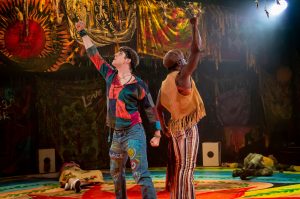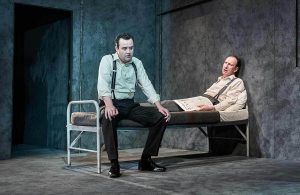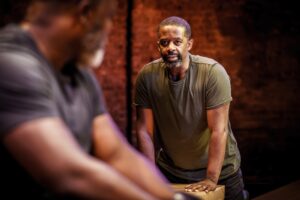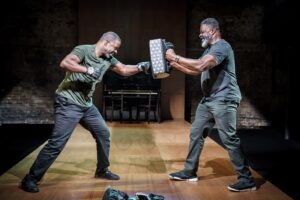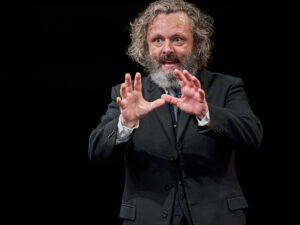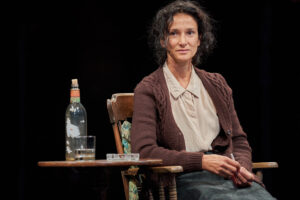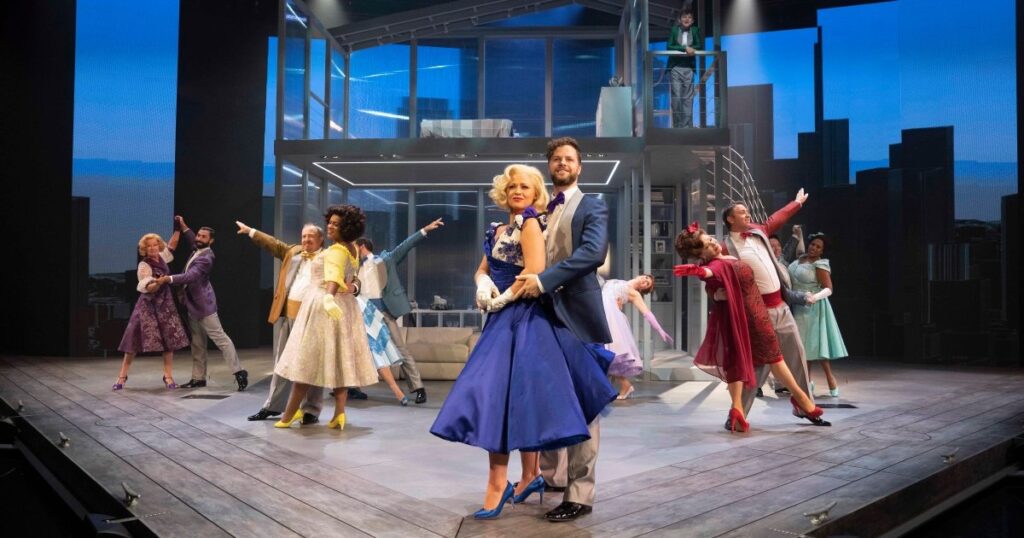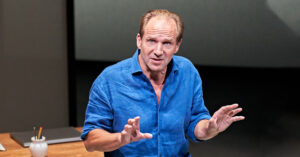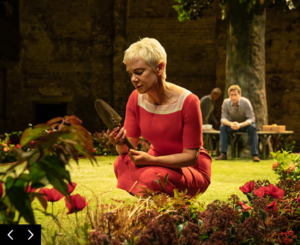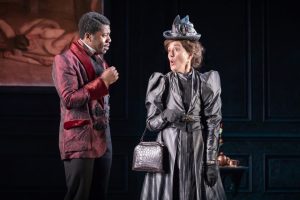Michael Ball floods Hairspray with sunshine
★★★★★

The musical Hairspray opened on Broadway in 2002 and hasn’t changed much since. The current production at the London Coliseum, normally home to English National Opera, and the forthcoming UK tour replicate the original, as directed by Jack O’Brien and choreographed by Jerry Mitchell. And why not? If it ain’t broke, don’t fix it. And Hairspray is not only not broke, it’s as strong as Emily Campbell.
Maybe they were just glad to be back in a theatre but the roar of the audience when the curtain went up said to me that this is a musical people love and you would mess with it at your peril.
I’m sure you know the story, set in the early sixties, about a young woman called Tracy. She is determined to dance on a local TV show, despite some people thinking she isn’t thin enough. In the course of that battle, she also fights segregation and liberates her previously embarrassed plus-size mother.
The familiar songs by Marc Shaiman and Scott Wittman are an ebullient stream of jaunty tunes and fun lyrics from the opening Good Morning Baltimore to the closing You Can’t Stop The Beat.
The original 2002 production is still as fresh as a Baltimore crab cake. David Rockwell‘s set design is cartoonish and colourful, within a proscenium arch shaped like a 1960s television. There are many clever touches- the moment three different households sing Mamma I’m A Big Girl Now (a scene you won’t find in the film of the musical), the way the Dynamites girl group walk out of a poster, and the walkdown finale, crowned by a giant can of hairspray. And there are the over-the-top costumes with the outrageous hairstyles (of course) by William Ivey Long. You really wouldn’t want to change any of that.Fierstein
The show is so well known that, as a reviewer, I’m left with the cast, who are different from the original production- and can make a difference. The producers just need to make sure the cast do what’s required of them. I’m pleased to report they exceed expectations.
The part of Tracy’s mother has always been played by a man. Harvey Fierstein was the first stage Edna Turnblad. When the production opened in London in 2007, Michael Ball took on the role, and he’s reprised it for this revival at the London Coliseum.
The part of Edna Turnblad doesn’t give us the chance to enjoy his beautiful voice to the full nor even the complete range of his acting skills, but we do get to appreciate his ability as a stage performer. Through his dimpled smile, his twinkling eye contact, the sense that you are getting 100%, this man has an incredible rapport with his audience. It’s as if he has bottled up sunshine and is releasing it into the auditorium. His Edna Turnblad, transforming from downtrodden domestic to dazzling diva, is a joy.
Les Dennis gets big billing as a well known name, and his performance as Edna’s warm-hearted, ever optimistic husband Wilbur doesn’t disappoint. His duet with Michael Ball in the poignant Timeless To Me, complete with suggestive repartee and convincing corpsing, is hilarious.

Michael Ball apart, the star of the show is Lizzie Bea as Tracy Turnblad, the only fully developed character. She convinces throughout, whether swooning over heartthrob Link Larkin (Jonny Amies), standing up forcefully for equal rights, or ignoring obstacles and confidently dancing to the music she loves. One of the best aspects of this musical is the way insults and barriers are water off a duck’s back for Tracy (even when she is left alone in prison- something else that’s not in the movie). So, you are not only on her side but never- or rarely- feel sorry for her. She is an advertisement for the power of positive thinking, as is this whole musical.
Rita Simons and Georgia Anderson are the nasty Van Tussle mother and daughter, with an unpleasant line in racism and sizeism. Mary McGinlay, making her West End debut, impresses as Tracy’s gawky friend Penny Pingleton.
For a musical about equality of opportunity and opposing racial discrimination, the black characters rarely take centre stage, but Motormouth Maybelle played by Marisha Wallace is as sassy a mother and as powerful a singer as she should be. This is after all a show that turns the spotlight on the role of mothers.
Ashley Samuels makes the most of the part of her likeable son Seaweed Stubbs, Penny’s love interest. Holly Liburd, Mireia Mambo and Robyn Rose sing impressively as the Dynamites.
As I was leaving, I heard a little boy say I’m glad Lion King was cancelled or else I wouldn’t have seen this. Well, I wouldn’t want to wish any show cancelled because of Covid isolation rules, and of course The Lion King is a great show, but I do think it was that little boy’s lucky day.
Hairspray is performing at the London Coliseum until 29 September 202. A production with a different cast is touring the UK from 16 August 2021. Click here for the dates and other details.
Click here to watch the video of this review of Hairspray on YouTube

